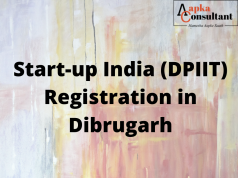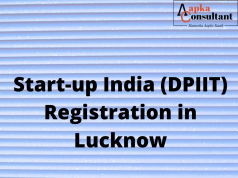Startup India Action Plan: – The Beginning of a BigBang for India!
“I see startups, technology and innovation as exciting and effective instruments for India’s transformation.” – Shri Narendra Modi
16th January 2016 was the day when Prime Minister Narendra Modi took a major step to transform his words into actions. PM Modi announced the idea of Startup India on 70th Independence Day of India at Red Fort and now he has unveiled an Action Plan highlighting various schemes and initiatives which will help in building a stronger ecosystem for startups to succeed. The Action Plan aims to spread the startup movement not only across various sectors covering information technology, social sector, education, agriculture, etc. but also in semi-urban or rural areas.
Following major announcements were made by the government during Startup India conclave held at Vigyan Bhawan on 16th January 2016: –
Definition of a ‘startup’: – There are no statutes present which define ‘startup’ and hence it was pivotal for the government to come up with a definition so that one could know as to what all falls under the definition and who all can be benefited by this initiative.
The Startup India Action Plan defines startup as: –
“Startup means an entity, incorporated or registered in India not prior to five years, with annual turnover not exceeding Rs. 25 crores in any preceding financial year, working towards innovation, development, deployment or commercialization of new products, processes or services driven by technology or intellectual property.”
Entity formed by splitting up, or reconstruction of a business which already exist will not be considered as a startup.
Also all those entities shall cease to exist as a Startup if they have completed 5 years from the date of incorporation or have their turnover for the previous financial year exceeding Rs 25 crores.
Moreover, a startup is eligible for all these tax benefits only if it obtains certification from the Inter-Ministerial Board.
In order to come under the ambit of this scheme, the startup should be working towards:
- Innovation
- Development
- Commercialization of new products, processes or services driven by technology or intellectual property.
This creates a dilemma as it is uncertain that whether an entity which does not use technology for providing its services can still be considered as a startup or not. For example, there is a company which rents jewelleries and clothes for various occasions as people faces difficulty in purchasing clothes and jewelleries for every occasion. Such kind of business is an innovation as it solves problem of majority of people but the business is not technologically regulated. Would a business like this can be considered as a startup?
It should fall under the definition of startup and it should not be mandatory for companies to heavily rely on technology. Therefore, the government should resolve such dilemma by rectifying the definition.
It is made clear in the Action Plan that an Inter-Ministerial Board will be set up in order to give necessary certification for tax benefits. But the process of certification should be completely online and time bound. There should be no physical interaction between the board and the company unless the members of the company want to give a detailed oral submission for the Board to reconsider its decision.
Quick exits for startups: – ‘Exits’ here means closing and winding up the startup. Earlier for this purpose the government was relying on the Insolvency and Bankruptcy Bill, 2015 but it still needs President’s assent in order to convert into a statute. Meanwhile the government is forming schemes with which the process of winding up will become inexpensive and less time consuming.
Startups to have a three years’ tax exemption: – This was the most important and most awaited announcement made by the government that exempt the startups from tax burden for three years. Though it is unclear that whether this three-years period will apply to startups once they start making profit or from the day of its incorporation. It will be futile if the latter becomes true as most of the startups do not make profit from the beginning of their incorporation.
Startup Action Plan is an optimistic approach to encourage young entrepreneurs of India to convert their ideas into actions and to think big without fearing of losing out. Modi government has finally given shape to its idea of ‘Startup India: – Standup India’ and we expect a lot more in the coming months as a lot of things are still uncertain. The Startup India Action Plan is kind of westernized model to encourage entrepreneurship in India and with few changes it would become much simpler and efficient. It should be of utmost importance for the government to form a team consisting of angel investors, business expertise, lawyers, and accountants to ensure that the final policies are as flawless as possible.
Author: This blog is written by Mr. Aman Tiwari, a passionate blogger & intern at Aapka Consultant.
OUR SERVICES
Company Registration I Trademark I Copyright I Patent I GST I MSME
ISO Certification I Website/App Policy I Legal Documentation
Annual Compliance I Connect Consultant
Visit: Aapka Consultant to get Online Services of CA CS & Lawyers.












